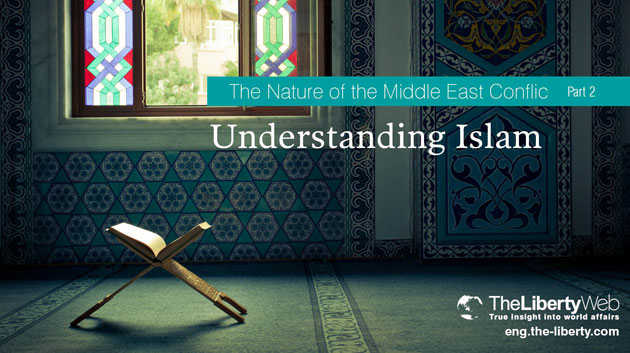Understanding Islam
A Shooting at a Paris Weekly Newspaper
The Path to Preventing Islamic Terrorism
A shooting at a weekly newspaper in Paris, the rise of the Islamic State, and the bombings of the autonomous Palestinian region of Gaza; there is no end to the battle between Judeo-Christians and Muslims. Continuing the 2014 December issue, here is Part 2 of the search for the core of the conflict in the Middle East.
Since the Charlie Hebdo incident, two people were killed in Belgium when a raid by Islamic extremists escalated into a shootout with the police. Conflicts have also spread in Pakistan, a predominantly Muslim nation, where injuries were reported outside the French consulate when demonstrations against insulting Islam turned violent.
In the background of this upheaval, the U.S. has been bombing the Islamic State of Iraq and the Levant, and Israel has been continuously bombing the Palestinian Gaza strip. The conflicts between Islam and Judaism/Christianity in the Middle East beginning to spread throughout the entire world.
The fact that the discord between Islam and Western Countries is deeply rooted is evident in the aforementioned spiritual message from Muhammad. Is there a path to eliminating Islamic terrorism and for bringing peace to the Middle East? Thus begins the search for solutions among the spiritual truths that Happy Science has been teaching.
Why Terrorism Continues
Endless disputes and poverty cause much distress in the Islamic world.
The Islamic extremists that have emerged from these conditions are conducting intermittent terrorist attacks in America and Europe. An examination of history reveals the causes and solutions for this situation.
What Is Islam?
When many hear the word “terrorism”, they tend to associate it with Islam. There are many reports about Muslim female oppression as well as conflicts amongst the Muslims themselves; but there is little understanding of what kind of religion Islam really is.
Islam’s Teachings on Peace and Tolerance
The prophet Muhammad established Islam in the 7th century on the Arabian Peninsula based on the words and teachings of Allah (God) that came to him. In Islam, religious leaders teach that God previously guided people such as Moses and Jesus, but as the teachings of Judaism and Christianity became twisted over time, Allah conveyed the Quran to Muhammad as his final word on the subject.
Thus the Quran is sanctified as the very words of God Himself. Hadith, the sayings of Muhammad, is also of great importance. These two texts form the basis of Sharia Law, the Islamic law that guides the way Muslims live.
The primary teachings of Islam are virtues such as submission to God, tolerance, peace, and equality. As is evident, Islam in its pure form is not at all a religion of violence.
A Ban on Savagery
While ancient Arabia had a tradition of killing baby girls to avoid having to present dowries at marriages, Islam prohibited this savagery. Muslims took it as their duty to protect widows and orphans, and even allowed women to inherit property. Islam played an important part in those vital reforms of society.
Muslims also denied racial discrimination. They created a society that put the bonds of faith before ethnicity. Their hostility towards other religions was also comparatively less than was the case with Christians followers.
Islam placed importance on social policies such as helping the weak and mutual aid. Muslim countries employed a system of distributing wealth to the underprivileged. Thus, the religious spirit of charity became deeply rooted in Islam.
A Large Number of Taboos
Islamic Law began as an advanced system. However, in recent times, it has become an impediment to progress. Because Muslims consider the laws of God omnipotent, Islamic Law binds all aspects of society: religious courtesy; criminal, civil, and economic law; military jurisprudence; as well as regulations on diet and clothing.
Among the religious practices, praying five times each day and the Ramadan fast are well known. There are also taboos on eating certain foods such as pork, and a strict regulation is placed on women’s clothing.
Criminal laws in certain Islamic regions call for brutal punishments such as stoning and the severing of limbs. Islamic Laws still influence civil laws on things such as marriage regulations. In terms of economics, religious leaders have even established a system called Islamic Finance wherein they banned taking interest.
The Causes of Military Conflict and the Discrimination of Women
What about Islam’s teachings regarding war? The Quran contains over 100 passages that promote peace and tolerance. The exceptions are a few passages that advocate inflicting death upon people of other religions. The extremists, however, justify their actions with hard interpretations of those sections.
The fact that Islam’s founder, Muhammad, spread his teachings while directing warfare could be one of the reasons why Islam is so prone to conflict.
In addition, American and European countries claim that Islam is a religion that discriminates against women. Indeed, discrimination is apparent in both education and the work opportunities available to women. In some countries, only women are heavily punished for adultery, and in Saudi Arabia, women are prohibited from driving.
Muslim men created these rules based on the discrimination of women evident in passages of the Quran and the Hadith. Reformers claim that these passages are reflections of particular times and societal conditions, and are not the true intentions of the eternal God. Extremists, however, exploit these opportunities to treat women like slaves.
In part 3 of our journey in search of an answer to terrorism, and an attempt at a broader solution to the turmoil currently engulfing the Middle East, we will look into the root causes of the conflict between Islam and the West.



















